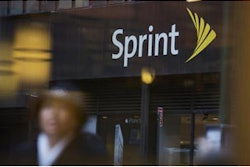NEW YORK (PRNewswire) — Does an uptick in the economy give people more reason to care about Mother Earth? That is what a March 2013 Harris Poll of 2,276 U.S. adults (ages 18+) interviewed online set to find out as Earth Day quickly approaches (full findings and data tables available here). Turns out that concern for the current state, and future, of the environment is on the rise in 2013 (38 percent vs. 31 percent in 2012), just as economic indicators point to all time stock market highs and a solid housing market recovery. However, as Americans start to feel better about reaching into their pockets, they still may not be ready to dish out the extra green on organic items. Turns out that more than half (59%) agree that labeling food or other products as organic is just an excuse to charge more.
"What surprised us most was that while Americans are showing more concern for the environment, they aren't necessarily willing to pay more to do anything about it," said Mike de Vere, President of the Harris Poll. "While Americans feel better about the economy, many are wary of the 'greenwashing' concept that gives companies a chance to cash in on consumers who want to help the planet but are confused by all the eco-friendly jargon."
Fact vs. Fiction
Going green continues to be a gray area, as consumers try to decide where it makes sense to incorporate it into their lives. While recent research shows that organic produce and meat typically aren't any better for you than conventional varieties when it comes to vitamin and nutrient content1, more than half of Americans (55%) believe that organic foods are healthier than non-organic. In addition:
- 41% think organic food tastes better and/or fresher than non-organic
- Only 23% know what the term "dirty dozen" (The Environmental Working Group's annual list of foods consumers should always buy organic due to pesticide levels) means in regards to organic food2
- 48% think washing dishes by hand is more environmentally friendly than using the dishwasher, though a study from Scientists at the University of Bonn in Germany found that the dishwasher uses only half the energy, one-sixth of the water, and less soap than hand-washing an identical set of dirty dishes3
Is it Easy Being Green?
Americans are divided on how easy, or not so easy, it is to live a more environmentally conscious lifestyle, with nearly equal percentages of U.S. adults perceiving it as difficult (49%) and easy (47%). When asked about sentiments towards going green, respondents indicated the following:
- Eight in ten Americans (80%) say they will seek out green products, but only three in ten (30%) are willing to pay extra for them
- 60% of Americans prefer to use environmentally friendly cleaning supplies because of the chemicals contained in traditional cleaning products
- As noted, the majority of Americans agree that labeling food or other products "organic" is just an excuse to charge more (59%).
- Men are the most skeptical about organic, with 63% agreeing that the labeling of food or other products as organic is an excuse to charge more, versus 54% of women
- Overall, efforts to be green seem to have leveled off, with nearly two-thirds (63%) making the same amount of effort to be environmentally conscious as a year ago, up considerably from 2009 (51%)
To see other recent Harris Polls, or to search through over 40 years of topics in the Harris Vault®, please visit the Harris Poll News Room .
Methodology
This Harris Poll was conducted online within the United States between March 13 and 18, 2013 among 2,276 adults (aged 18 and over). Figures for age, sex, race/ethnicity, education, region and household income were weighted where necessary to bring them into line with their actual proportions in the population. Propensity score weighting was also used to adjust for respondents' propensity to be online.
All sample surveys and polls, whether or not they use probability sampling, are subject to multiple sources of error which are most often not possible to quantify or estimate, including sampling error, coverage error, error associated with nonresponse, error associated with question wording and response options, and post-survey weighting and adjustments. Therefore, Harris Interactive avoids the words "margin of error" as they are misleading. All that can be calculated are different possible sampling errors with different probabilities for pure, unweighted, random samples with 100% response rates. These are only theoretical because no published polls come close to this ideal.
Respondents for this survey were selected from among those who have agreed to participate in Harris Interactive surveys. The data have been weighted to reflect the composition of the adult population. Because the sample is based on those who agreed to participate in the Harris Interactive panel, no estimates of theoretical sampling error can be calculated.
These statements conform to the principles of disclosure of the National Council on Public Polls.
The results of this Harris Poll may not be used in advertising, marketing or promotion without the prior written permission of Harris Interactive.
The Harris Poll ® #21, April 15, 2013
About Harris Interactive
Harris Interactive is one of the world's leading market research firms, leveraging research, technology, and business acumen to transform relevant insight into actionable foresight. Known widely for the Harris Poll® and for pioneering innovative research methodologies, Harris offers proprietary solutions in the areas of market and customer insight, corporate brand and reputation strategy, and marketing, advertising, public relations and communications research. Harris possesses expertise in a wide range of industries including health care, technology, public affairs, energy, telecommunications, financial services, insurance, media, retail, restaurant, and consumer package goods. Additionally, Harris has a portfolio of multi-client offerings that complement our custom solutions while maximizing our client's research investment. Serving clients in more than 196 countries and territories through our North American and European offices, Harris specializes in delivering research solutions that help us – and our clients – stay ahead of what's next. For more information, please visit www.harrisinteractive.com .






















